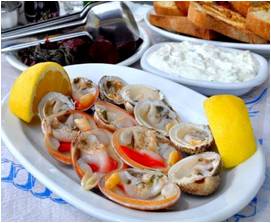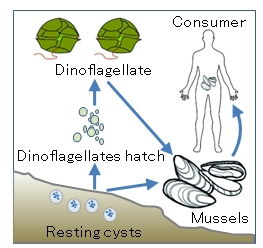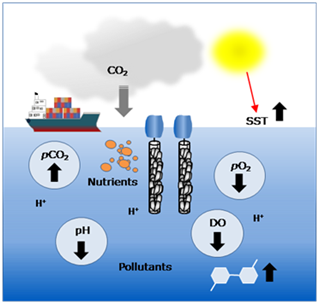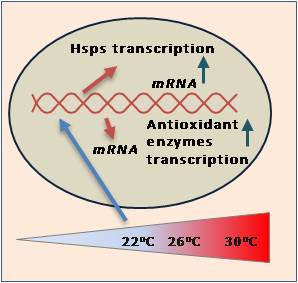Investigation of bacterial and viral pathogens, dangerous to the public health, in bivalve molluscs distributed by the seafood markets of Thessaloniki
Overall, bivalve mollusks poisoning is minimal in Greece, and this markedly increases the confidence of consumers for mollusks consumption, further enhancing trade and economy at a local and national level.
Athanasios Lattos*, PhD candidate and member of the BIVALVIANET research group, and Dr. Hlias Chaligiannis, veterinarian, were recently granted by the Ministry of Development and Investment a thorough study on the appearance of known (e.g. E. coli, Salmonella spp.) and potentially new pathogen species (e.g. Vibrio spp.) in edible bivalves, provided by two retail seafood markets in the Regional Unit of Thessaloniki. The project was granted in the context of "Supporting researchers with an emphasis on young researchers (EDBM34)".
For the purpose of this project, an one-year investigation is carried out in order to examine whether raw bivalves are contaminated by pathogenic microorganisms. The examined bivalve species include Mytilus galloprovincialis, Callista chione, Ruditapes decussatus, Venus verrucosa and Ostrea edulis, sampled monthly from two retail seafood markets in the Regional Unit of Thessaloniki. According to Athanasios Lattos, identification of pathogens is performed in the bivalve digestive gland tissues applying standard ISO methods, as well as molecular techniques such as polymerase chain reaction (PCR), and Next-Generation Sequencing (NGS) technology. PCR and NGS methodologies are under the supervision of Assist. Prof. Ioannis Giantsis. As Lattos emphasized, new molecular methodologies are heavily involved in the early prediction of pathogens dispersal in the edible bivalves, thus preventing market and human health from risk.
*Athanasios Lattos is PhD student at the Laboratory of Animal physiology, Department of Zoology, Faculty of Biology, under the supervision of Professor Basile Michaelidis.







